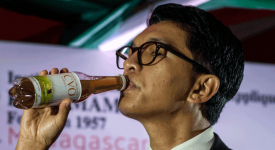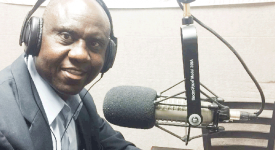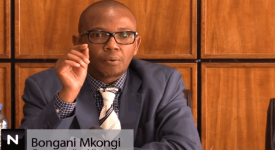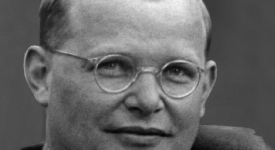In regards to life’s course and games, Ola Rotimi asserts that “The struggles of man begins at birth and ends at death.” Yes it is the struggle of man generically which ends at death. The struggles of, or against blackness, negritude, identity, racism, poverty, homelessness, low-income, immigration, mass incarceration, or political repression have no time limits. While we remember still remember all that the legendary African-American clergy and activist, Dr. Martin Luther King Jr. achieved in the course of his life, to reclaim the snatched dignity of black people in the United States from the hands of racist ideologues, that same struggle continues to be with us, steering into our faces, as we seem to be handicapped; most times, we, in fact, with black rulers caving in in order to grab a quick bite of the modern porridge, our corporate and community troubles will for some time be undislodged morsel of embarrassments.
We know Dr. Martin Luther King Jr. as a preacher, activist, black leader extraordinaire, who while the force of American might was (being) tested in Vietnam, leaving
lives’ tales untold, made efforts to give the nation a new meaning of modern morality compass, hoping to save some. Dr. Vincent Gordon Harding drafted the famous King Anti-Vietnam War speech “Beyond Vietnam: A Time to Break Silence,” which King delivered on April 4 1967, exactly one year before the historic and dastardly assassination that cut his life short, thereby, confirming and commencing the gloomy reality lurking in-side the American society.
The introduction of King’s speech reads:
“OVER THE PAST TWO YEARS, as I have moved to break the betrayal of my own silences and to speak from the burnings of my own heart, as I have called for radical departures from the destruction of Vietnam, many persons have questioned me about the wisdom of my path. At the heart of their concerns this query has often loomed large and loud: Why are you speaking about the war, Dr. King? Why are you joining the voices of dissent? Peace and civil rights don’t mix, they say. Aren’t you hurting the cause of your people, they ask. And when I hear them, though I often understand the source of their concern, I am nevertheless greatly saddened, for such questions mean that the inquirers have not really known me, my commitment or my calling. Indeed, their questions suggest that they do not know the world in which they live.” (source: CommonDreams.org)
Dr. Harding was, until his death on May 19, 2014, a historian and scholar of American religion. He was 82 years. Harding was the first director of the Martin Luther King Jr. Memorial Center and of the Institute of the Black World, which had influences on the founding of the Religious Heritage of the African World (RHAW) by Dr. Ndugu T’Ofori-Atta (formerly christened George Thomas) all in the historic city of Atlanta. A calm speaker and meticulous person, Dr. Harding’s demeanor and approach to life challenges African (and indeed black) leaders around the world to new standards of integrity. With the death of Dr. Harding, the black world has yet lost another legend to the cold hands of death. It is now the reality that both King and Harding “finished the race” well. But with the goings-on inside and within the walls of black institutions of (un)learning, where the blame is totally placed on the shoulders of racism; where individual leaders dread accountability for personal actions and inactions, the truth is not too far-fetched. Black struggles would be troubles which black people dread solving.
As a quick reminder 4th of April carries the pregnancy of foreboding narratives in American history. A voice crying for justice was silent by the metallic pin-pong of wickedness. The credit for this barbarity does not go back to a continent known in blackness biographies as dark; it remains with a civilized nation with pride as the apex of human civilization! Alas, we might have to look elsewhere for our moral anchor just as the baptizer surnamed Zachariah questioned the sanity of his own belief.
“I have a dream,” Dr. King told us. That dream is still his dream, whether we can and WILL dare efforts to rise above our circumstances, to join in the upward trudge to that promised land is entirely a different matter. King had “been to the top of the mountain.” The pains going up may be indescribable to anyone who refused to take
their own turn in climbing up. But when shall black people recognize that the time to move (up) on to the other side is long overdue?









